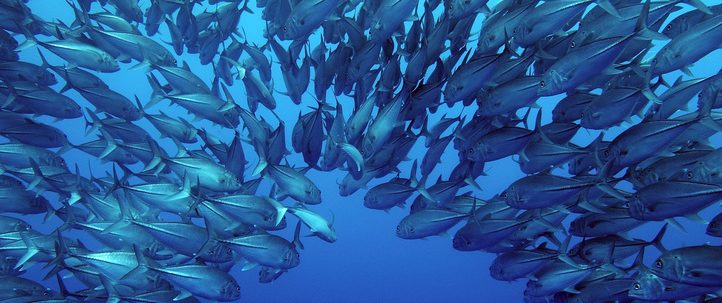The last year has seen some promising changes in the global framework for environmental governance. COP27 and COP15, while they didn’t go as far as necessary to hold back the escalation of global temperatures, have set some important precedents – particularly around ocean governance – that create the potential for decisive change in the future, Orgera writes.
But at the same time, one governance structure that has remained intact has been the outdated dominance of the world’s Regional Fisheries Management Organizations (RFMOs) over the stewardship of the world’s oceans.
The current RFMO “fisheries management” paradigm has two major problems:
First, RFMOs treat fisheries as an extractive natural resource and focus solely on managing their extraction (in essence, treating the world’s marine wildlife as an element to be mined).
The second problem is that RFMO operating practices either passively discourage or actively block the participation of non-industry observers and the global media.
Both of these problems belie a major geo-environmental role played by the world’s marine wildlife, namely in maintaining the ability of the world’s oceans to help regulate CO2.
They also enable a forestalling of any honest accounting for the environmental impacts of the process of harvesting, processing, refrigerating, and transporting fish products, precisely because RFMO secrecy and ineptitude prevent catch levels from being adequately monitored and scored.
Take, for instance, the least open of the world’s major tuna RFMOs, the Western and Central Pacific Fisheries Commission (WCPFC*) which to this day bars political observers from attending its compliance meetings, which are often held in particularly remote locations.
The WCPFC calls itself “an international fisheries management organization responsible for the conservation and sustainable use of highly migratory fish stocks, particularly tuna, in the Western and Central Pacific Ocean.” Its purview covers a swath of the Pacific Ocean that currently produces 56% of the world’s tuna supply.
In a recent release marking the visit of WCPFC Executive Director Rhea Moss-Christian to The Pacific Community (SPC) in New Caledonia, the WCPFC noted that it has “recently prioritized climate change discussions as part of its future work.”
At the same time, WCPFC makes it clear that it is only viewing climate change through the lens of its impact on tuna fisheries, saying “SPC’s ongoing efforts in studying climate change impacts on tuna fisheries is an important contribution to supporting those discussions.”
This innocuous-sounding phrasing is in fact indicative of the case for change.
While RFMOs have wide-ranging powers over the world’s marine ecosystems, their single-minded focus on maximizing the number of fish available for extraction means that the ability to develop appropriate carbon-management strategies that involve the world’s oceans will continue to be sadly sub-optimized.
It is particularly ironic that this is WCPFC’s chosen approach when two-thirds of its member countries are among the world’s most vulnerable to climate change at an existential level.
As the recent UN High Seas treaty offers no immediate check on the ability of the RFMOs to overemphasize industrial fishing’s interest in the marine ecosystem – to the exclusion and detriment of all other stakeholders – the absolute minimum we need is greater openness in RFMO proceedings so that we can at least follow the extent to which they are contributing to the overexploitation of the world’s marine life.
The WCPFC is where this change needs to start. Without an open compliance meeting, along with a single-minded focus on mitigating climate change impacts solely for the benefit of the industry, it’s a body that’s ripe for a push for greater global scrutiny.
But fixing one RFMO’s egregiously secretive practices is only a start. The RFMOs’ secretive supremacy over ocean management needs to be meaningfully challenged and ultimately scrapped. In the meantime, opening up RFMO decision-making is the only way forward.
*Members of the Western and Central Pacific Fisheries Commission include Australia, Canada, China, Chinese Taipei, Cook Islands, European Union, Fiji, France, Indonesia, Japan, Kiribati, Marshall Islands, Federated States of Micronesia, Nauru, New Zealand, Niue, Palau, Papua New Guinea, Philippines, Republic of Korea, Samoa, Solomon Islands, Tonga, Tuvalu, United States of America and Vanuatu. Participating Non-Independent Territories include American Samoa, Commonwealth of the Northern Mariana Islands, French Polynesia, Guam, New Caledonia, Tokelau and Wallis and Futuna. Cooperating Non-Members include Belize, North Korea, Ecuador, El Salvador, Mexico, Senegal, St Kitts and Nevis, Panama, Thailand, and Vietnam.
Ryan Orgera is Global Director of Accountability.Fish, a worldwide campaign for openness and accountability in international fisheries decision-making. For more information, contact Ryan at (ryan.orgera@accountability.fish).
The opinions expressed in this article are those of the authors and do not necessarily reflect the opinions of this publication.
